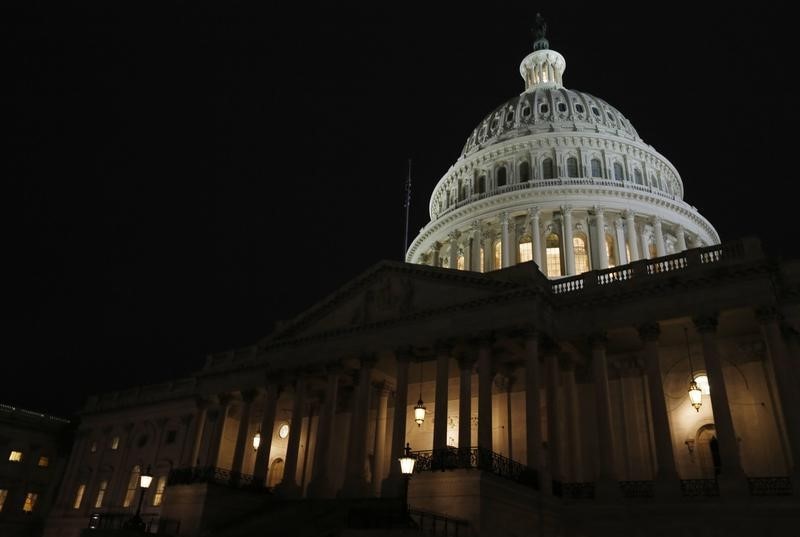By Kevin Drawbaugh
WASHINGTON (Reuters) - The U.S. Congress is moving this week toward putting off until 2015 any conclusive action on a tangle of Internet tax issues, including online access taxes and online state sales taxes.
Though technically separate, the two have become entwined by political maneuvering, with a holding action in the works on Capitol Hill, according to analysts and lobbyists.
Democratic Senator Ron Wyden of Oregon said on Tuesday, as expected, that a one-year extension of a moratorium on any new taxation of Internet access will be included in a massive stopgap spending bill still being negotiated in Congress.
That will likely leave until next year consideration of the broader question of possibly making that moratorium permanent, as well as demands for a new approach to online sales taxes.
"What we're looking at is kicking the can down the road and putting this issue into 2015," said Clay Brockman, an analyst at Height Securities.
Bricks-and-mortar retailers have pushed for years for empowering the 45 states that charge sales taxes to require etailers to collect it on online purchases. At present, only some states require this and only for some etailers.
The inconsistency of the system gives many online merchants that do not collect sales tax a pricing advantage over traditional stores that must, under law, collect sales tax.
Online shoppers are supposed to submit payment for tax due, but almost no one does. As a result, many online purchases are tax-free and cheaper than in-store purchases.
The Democratic-led Senate approved a bill last year to enable states to force collection of sales tax on Internet purchases, but it stalled in the House of Representatives. Republicans there opposed it as a tax increase even though online shoppers were already, by law, supposed to pay sales tax.
Separately, the House in July approved a bill to permanently ban new taxes on Internet access. The Senate did not approve that bill, but some House and Senate lawmakers crafted new legislation that would both extend the Internet access tax moratorium and close the online sales tax "loophole."
That, too, stalled after state and local governments pushed back, with as much as $500 million in tax revenue on the line and potentially more put at risk by a multi-year moratorium.

House Republican leaders have signaled that all these matters are likely to be taken up again early in 2015, when Republicans will control both the House and Senate.
(Reporting by Kevin Drawbaugh; Editing by Will Dunham)